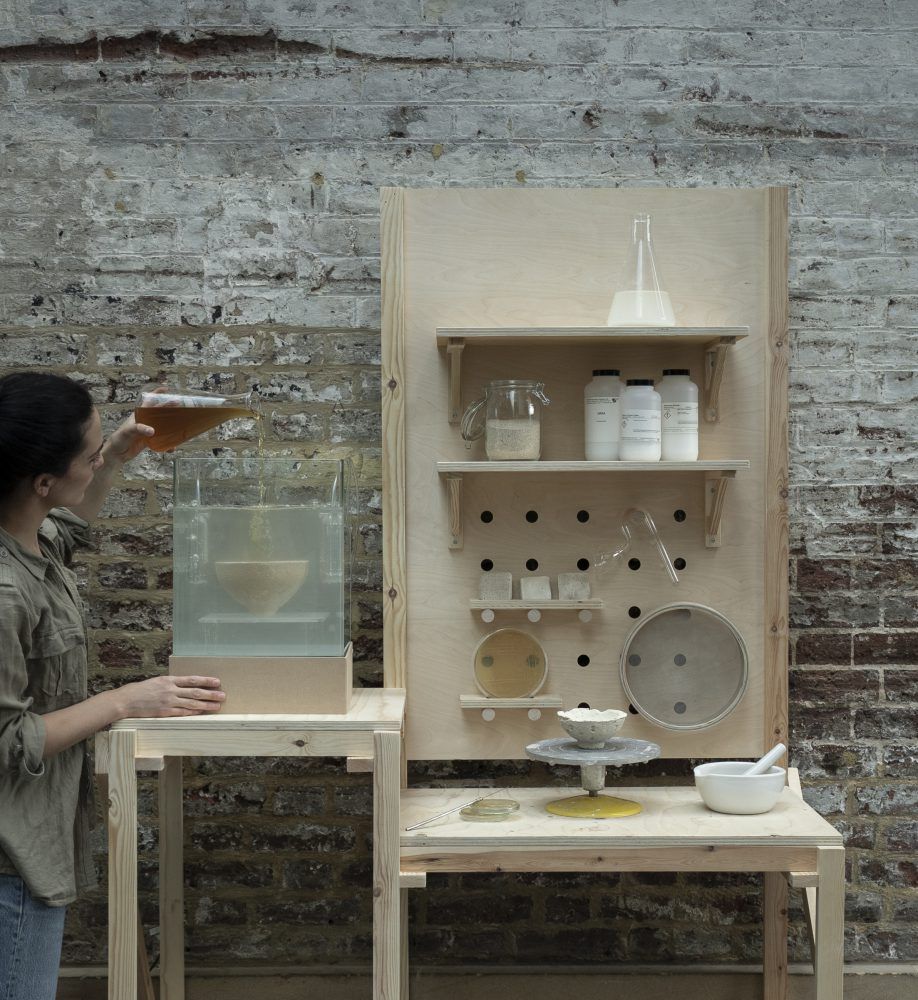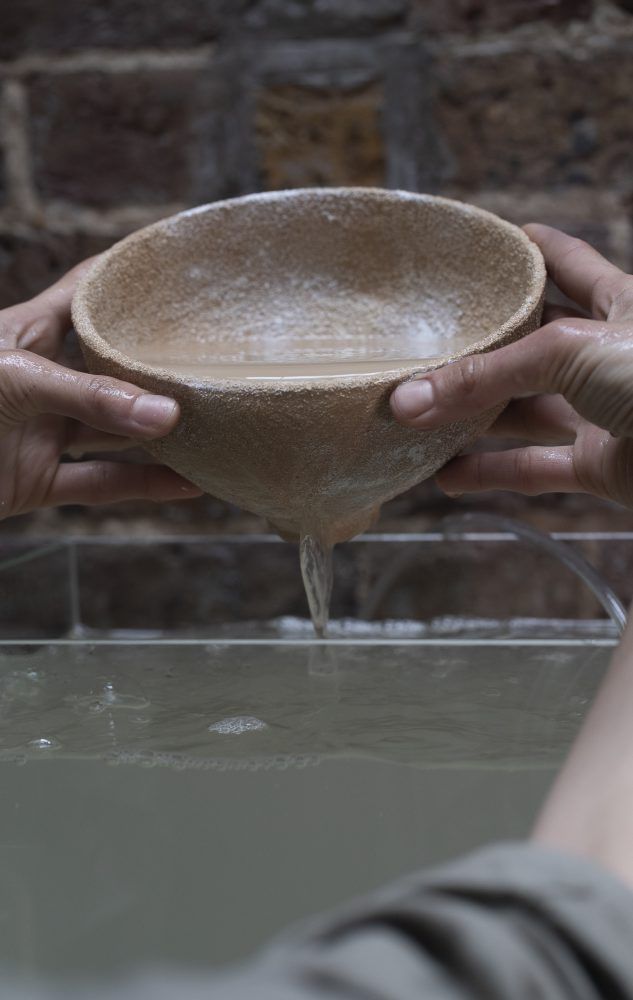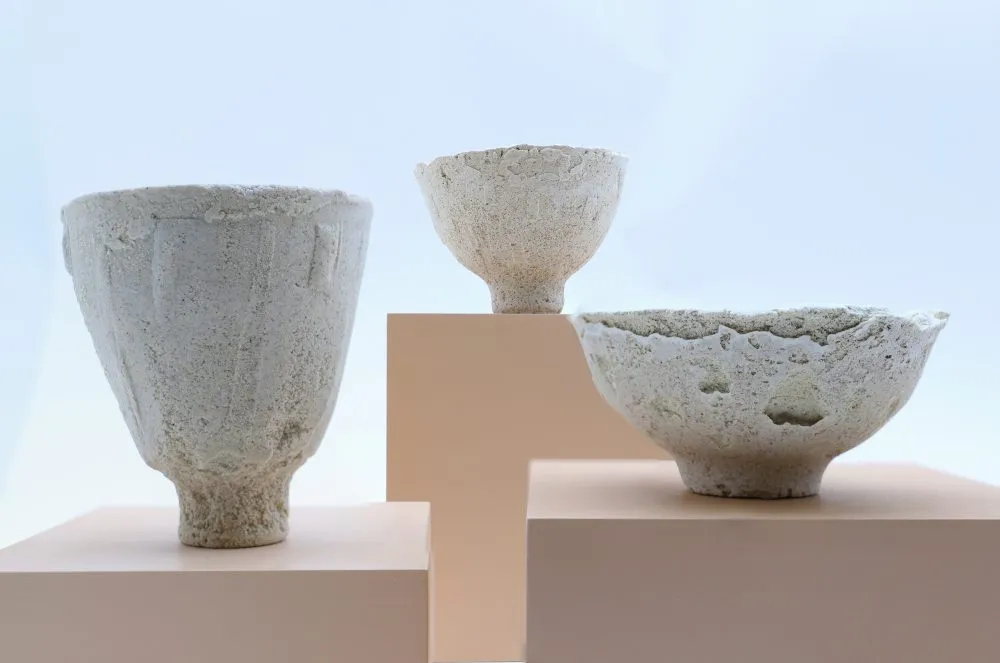In ancient times, pottery was crafted without the need for kilns, the furnace or oven used for firing pottery or ceramics. Now modern practices heavily rely on them, posing significant environmental challenges. Recognising the drawbacks of conventional pottery production, designer Nicole Chrysikou drew inspiration from ancient methods to pave the way for more sustainable practices. Embracing nature's ingenuity, Nicole harnesses the power of bacteria for her pottery practices. With this, she decreases its ecological footprint.

Pottery, a craft deeply ingrained in human history, faces challenges associated with its conventional production methods, particularly the energy-intensive and environmentally harmful kiln-firing process. As pottery gains popularity as a therapeutic outlet, there is a growing need for more sustainable practices within the craft.
As pottery gains popularity as a therapeutic outlet, there is a growing need for more sustainable practices within the craft.
BacTerra proposes the use of soil-born, non-pathogenic bacteria to create ceramics that bypass the kiln-firing process altogether. By harnessing the biomineralization process, these alternative ceramics are naturally solidified and glazed, offering a sustainable alternative to traditional methods. Nicole's project aims to initiate a dialogue about the potential of biotechnology in pottery and traditional crafts, emphasizing the importance of embracing new processes and techniques.

Nicole's journey involved extensive research and experimentation, starting with exploring various biomaterials to replicate the hardness of ceramics. Her breakthrough came when she discovered that calcium carbonate, a key component of eggshells, can naturally form through bacterial action. Collaborating with scientists from the University of Cape Town, Nicole delved into the biomineralization process, refining her technique through trial and error.
How can we balance innovation with tradition while minimizing environmental impact?
How can we balance innovation with tradition while minimizing environmental impact? And what ethical considerations arise from merging biological processes with artistry? BacTerra might answer these questions and more by showing the transformative power of biotechnology, and sparking conversations about the future of craftsmanship and sustainability.


Comments (0)
Share your thoughts and join the technology debate!
No comments yet
Be the first to share your thoughts!